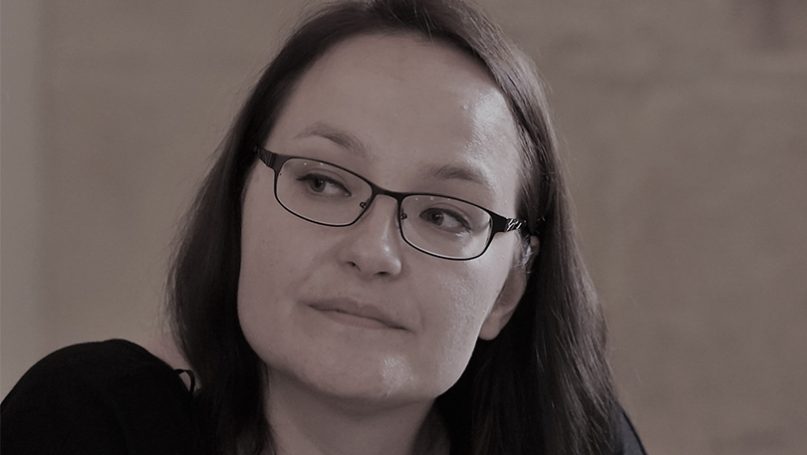
This feature is part of a series of interviews with the contributing authors of Foundations of International Relations.
Anitta Kynsilehto is a Senior Research Fellow at Tampere Peace Research Institute, Tampere University. She is the author of ‘Migration’ in McGlinchey, Stephen (2022). Foundations of International Relations. Bloomsbury: London. Anitta also contributed a chapter to Critical Perspectives on Migration in the Twenty-First Century.
Your chapter in Foundations of International Relations deals with migration – how did you first get involved in thinking about this particular issue / area of focus?
I’ve been interested in global mobilities since I was very young, through travelling and exploring the world with my family and later on my own. Moreover, the arrival of refugees to my hometown in the Finnish Lapland in the early 1990s and talking to them opened my eyes to different reasons for which people have to leave their countries, as well as the difficulties they encounter when trying to continue their lives in a new environment. As I continued with my studies, I wanted to work on these themes from different perspectives.
In terms of your journey from one-time student to academic, how did you find your way into this profession, and can you give a brief summary of your career thus far?
I have followed my passion in global mobilities and global social justice. Thus far this passion has led to pursuing a doctoral degree and working at different positions at my current institution (Tampere University), now with a tenure-track position as a senior research fellow in Peace Research. In 2015 I worked for a short period at the Nordic Africa Institute in Uppsala, which gave me a insight into a more policy-oriented think-tank type of research environment. Interlinkages between the academia and other spheres of the society are highly important for me, concerning engagement with both civil society organisations, groups and individuals, and policymakers at different levels.
How has the way you understand the world changed over time, and what (or who) prompted the most significant shifts in your thinking?
There have been many people on the way, both those I’ve encountered in different parts of the world and those in my university who have shared my passion and feminist curiosity towards the world. In the academia, I believe in multidisciplinary work and through my ethnographic engagements I learn from practitioners in different fields. At the home front, I’ve learnt a lot from my children who challenge my thinking and have taught me the kind of patience I might have lacked otherwise.
Do you think it is more important for academics (and students by extension) to dedicate most of their time to understanding the world, or instead actively to working to change it?
In my opinion, these go hand in hand: it’s difficult to change the world if one doesn’t understand it, and those of us who have the privilege to devote time to understanding the world need to find ways to work towards making it a better place for everyone. This said, there usually are times at one’s life when one is emphasised over the other.
Where do you see the most exciting research and debates happening in and around the discipline of International Relations?
I follow especially feminist, postcolonial and antiracist debates and find these very exciting.
What is the most important advice you could give to students who are starting their journey with International Relations?
Keep the curious attitude towards the world as there is so much to discover, understand and hopefully change for the better for everyone.
Those who read your chapter in Foundations of International Relations will take away many ideas and thoughts with them, but is there something specific you would like to leave in their minds?
There are persons, their stories, families and friends, behind all these categorizations of global mobility, and their lives are impacted by migration governance.